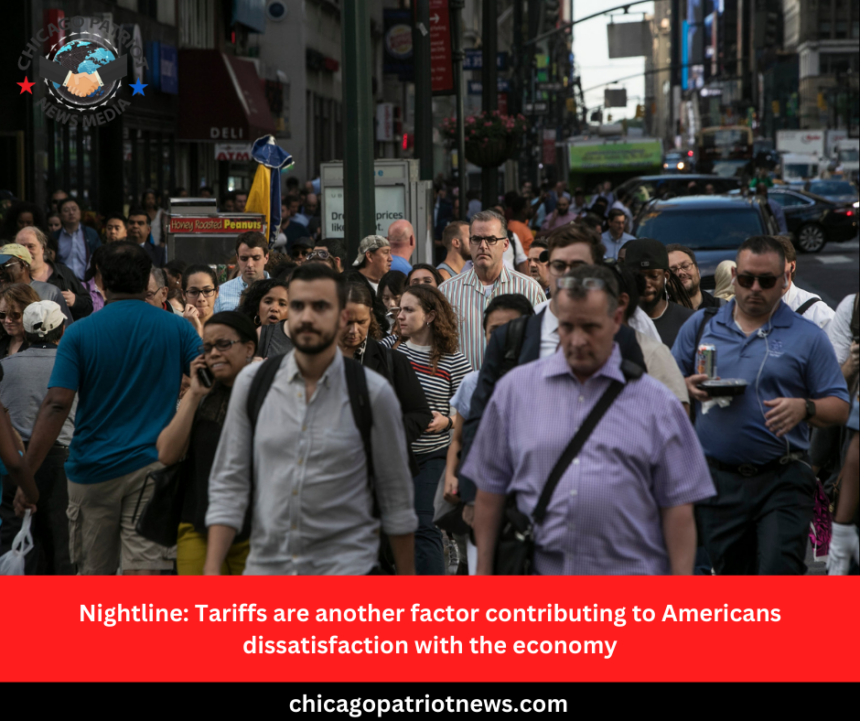Chicago – April 04, 2025
Americans are feeling down about the economy, and it’s starting to impact their spending habits.
With President Trump introducing a new round of tariffs, consumers are becoming more cautious with their purchases, raising concerns about a potential economic slowdown.
According to the Commerce Department, personal spending in February was lower than expected, particularly in discretionary areas like dining out.
Concerns about personal finances, unemployment, and inflation are widespread across political lines, with many attributing them in part to the president’s tariff policies and government job cuts. A University of Michigan survey found that consumer sentiment declined for the third straight month in March.
Americans Want Lower Prices
A recent CBS News poll shows that most Americans believe the president is focusing too much on tariffs and not enough on reducing prices. While inflation has dropped significantly since its peak in 2022, consumer prices remain high and are expected to rise further as tariffs take effect.
I try to stick to a budget, and it’s been really difficult,” says Kathy Merkler, a research laboratory coordinator from Tampa, Florida. I’m paying the same amount but getting fewer bags of groceries.”
Merkler is also worried about the job market in the scientific sector due to federal budget cuts at the National Institutes of Health and the Centers for Disease Control and Prevention. She and her husband have been debating whether now is the right time to replace their aging 2015 Kia Soul.
Even though it’s on its second engine and has over 225,000 miles, it’s still a reliable car, Merkler says.
The 25% tariff imposed by Trump on imported cars and auto parts is expected to drive up new car prices by thousands of dollars while also increasing the cost of used vehicles.
Consumer spending is the backbone of the U.S. economy, showing remarkable resilience through both the pandemic and the subsequent period of high inflation. However, that momentum now appears to be slowing.
If you’re a consumer, you’re probably thinking, I’m not so sure about these tariffs, says Dan North, a senior economist at Allianz Trade North America. My income feels like it’s shrinking, and on top of that, I just opened my credit card bill and still have holiday purchases to pay off. I need to tighten my budget a bit.
Fluctuations in the stock market may also be making consumers more hesitant to spend. Since Trump took office in January, the S&P 500 has dropped more than 5%, which could be contributing to financial uncertainty.
Not all the effects of the tariff threat have been negative for spending. Some consumers rushed to buy expensive items in February before the new import taxes took effect, leading to a 1.4% increase in spending on durable goods. However, economists predict this spending surge will be short-lived.
Dawn Woodward, a librarian in Michigan, bought her son a new television ahead of his birthday to avoid potential price hikes due to tariffs. However, she is now being more cautious with her spending.
I realized that a lot of things I thought I needed ‘Oh, I must have this or that’ weren’t necessities, she says.
Instead of making unnecessary purchases, Woodward is focusing on growing her family’s emergency savings. And she’s not alone many consumers are choosing to set aside more money rather than spend.






